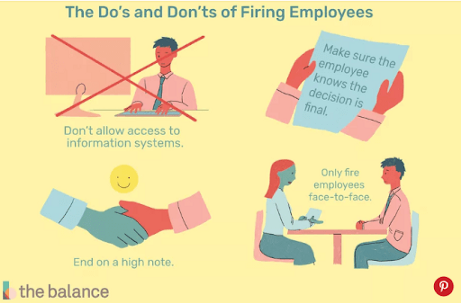In the world of human resources, there are a plethora of challenges that managers face. Although all managers struggle with these common leadership challenges, they are especially testing for first-time managers.
If you’re an HR manager, you probably know that managers have a responsibility to lead a team, but they also need to learn how to fire an employee, keep employees engaged, and build trust. That’s why if you want to grow into the role of the HR manager and beyond you better learn and overcome the leadership challenges.
To help you, I’ve put together a list of some of the most common leadership challenges for HR managers and tips for how to solve them. Hopefully, they’ll help you become the best version of manager employees could ask for.
Common Leadership Challenge #1: Keeping the Team Motivated and Engaged
The key to bringing life to your team and move your company forward is finding ways to keep your workforce fully engaged. Unfortunately, according to Gallup, 70 percent of employed Americans are disengaged. This is why keeping your employees engaged in the workplace is one of the most common leadership challenges.
What can a first-time manager do? Here are some ideas that I’ve found to be effective:
- Hold only essential meetings. Employees don’t love spending hours on meetings. If you want to create an engaged workforce, you need to figure out which meetings are productive for your employees, and which aren’t.
- Trust and transparency. Inform your employees about the company’s business strategy, vision, and long-term goals.
- Team relationships and connection. All employees crave close relationships and connections. Bring the team together often by celebrating special days and company milestones, and organizing team-building events.
- Benefits package. Compensation is still #1 on employees’ wishlist; however, it’s not the only one. Employees today seek benefits like flexibility, more vacation days, and growth opportunities.

Common Leadership Challenge #2: Difficulties Openly Communicating with the Team
First-time managers might struggle with the communication aspect of managing a team. Employees might not be used to having a new manager around or are scared of openly communicating their thoughts and concerns.
Encouraging your team to speak their mind is essential in becoming a manager and leading your company towards success. If employees can feel like they can be honest and speak up, they’ll be more focused on meeting deadlines and overcoming challenges.
Here are some tips for creating an ambiance of open communication:
- Make employees feel safe speaking openly about their problems. You shouldn’t judge or insult them, but instead, offer words of encouragement.
- If you have employees on your team who aren’t comfortable speaking in front of many people, make sure you hold 1-on-1 meetings with them where they can share their thoughts.
- Instead of waiting for your employees to knock on your door with a problem, why not make it a habit to ask them yourself. Encourage more regular one-on-one, laid-back conversations so that your team has different ways to express themselves.
Common Leadership Challenge #3: Firing an Employee
The act of firing an employee is one of the most common challenges faced by managers in the 21st century. This is an emotional experience that can leave you feeling anxious and guilty. You need to inform the employee kindly of the decision and make sure that everything is legally and ethically correct.
Here’s what you can do:
- Make sure your actions are legal. Did the employee sign a contract? Can you terminate their agreement at any time?
- There’s no need to sugarcoat things. The employee should know the honest reason for their termination.
- Clarify the details of the termination.
- Never fire an employee without warning. Make sure you’re tracking their performance and have these records with you during the termination meeting.
- Deliver the news most professionally and kindly as possible.
- Offer the employee career suggestions.

Common Leadership Challenge #4: Micromanaging the Team
Although it’s a manager’s role to support and mentor their team, there’s a difference between managing and not giving your team members the space to do their work. First-time managers might think that they need to control and oversee everyone’s job, double-checking what’s been done, and acting as “control freaks.” However, this practice of micromanaging can soon suffocate your team, and they won’t be able to give their 100%.
To overcome this common leadership challenge, here’s what you should do:
- Ensure each member of a team knows what is expected of them. Once everyone is in sync with expectations, there is no need to micromanage.
- Ensure your team has the skills to perform their tasks.
- Ask your employees for an opinion. How do they want to be managed?
- Focus more on managing your company’s culture than people.
- Trust your team.
- Implement a project management system where you can check the status of a project. This can help you stay up-to-date without being overbearing.
Common Leadership Challenge #5: Under-Managing the Team
As much as micromanaging can be an issue for employees, under-managing your team can also cause significant problems. Not giving your team enough guidance on how to complete specific tasks might result in confusion, lack of quality, and high retention rates.
The key is to find the right balance between suffocating and not giving enough guidance. Here’s how you can find that balance:
- Communicate the company goals and values to your employees.
- Let each employee know what they’re responsible for.
- Conduct yearly performance reviews to check employees’ achievements and advancements.
- Use a project management system to stay up-to-date.
- Take advantage of collaboration tools to stay in close touch with your team. You can use tools like Slack or Asana.
- Define a code of conduct. Setting a code of conduct is a smart idea as it can provide the basic ground-rules that guide team members behavior.
Conclusion
There you have it, the five most common leadership challenges for HR managers and how to overcome them. If you have the time, I would suggest you take a closer look at the advice I offered if you want to make progress in your career. Becoming a manager is not an easy task; on the contrary, it requires constant learning and development. Hopefully, you’ll manage to overcome the challenges faced by managers in the 21st century and become a leader that employees will respect and look up to.









